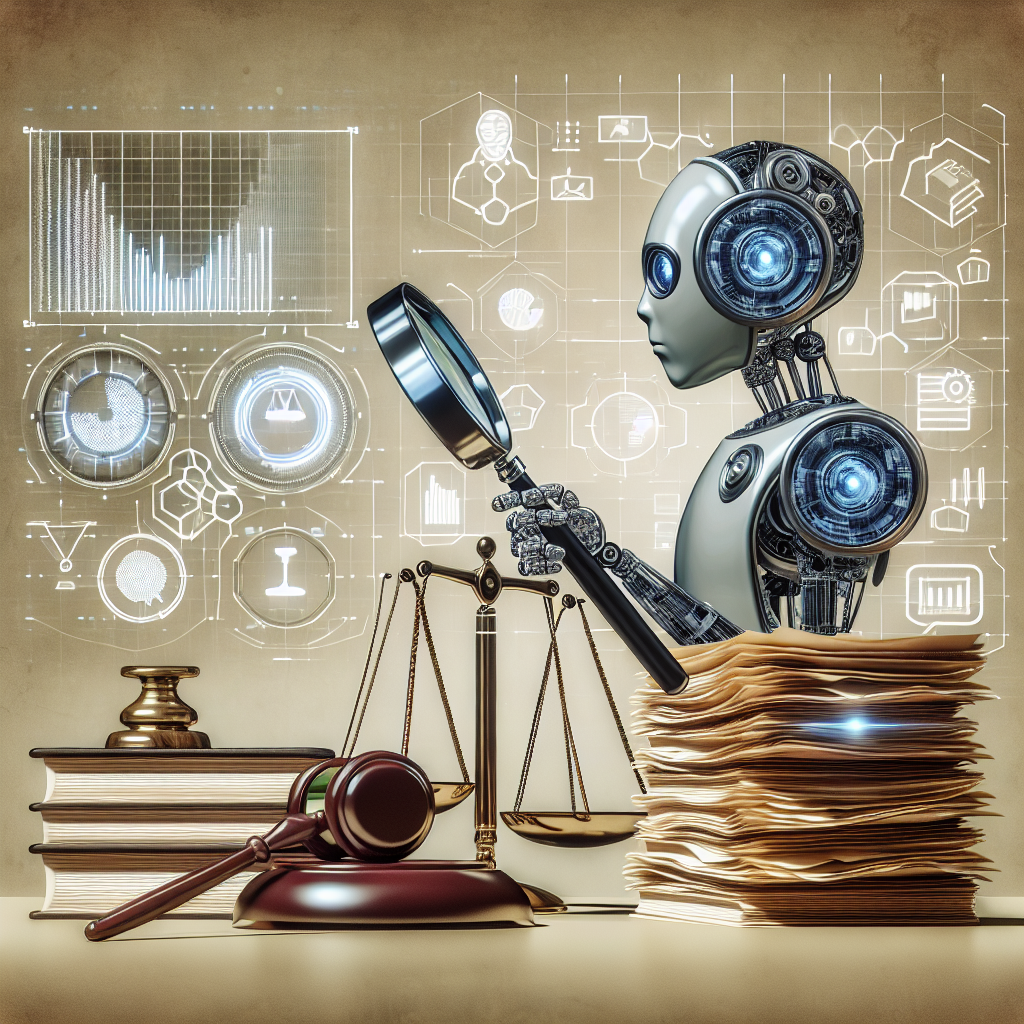The legal industry, traditionally viewed as a realm of human expertise and labor-intensive tasks, is undergoing a significant transformation. This revolution is largely propelled by advancements in Artificial Intelligence (AI). AI in legal tech is reshaping how lawyers, firms, and legal departments operate, bringing about enhanced efficiency, accuracy, and accessibility. Let’s delve into the profound impact AI is having on the legal industry.
1. Introduction to AI in Legal Tech
AI, when integrated into legal technology, leverages machine learning, natural language processing (NLP), and data analytics to streamline and improve various legal processes. From document review to contract analysis, AI-powered tools are revolutionizing traditional legal workflows.
2. Key Applications of AI in the Legal Industry
The integration of AI in legal tech offers numerous applications that are transforming the industry:
2.1 Document Review and Analysis
AI-driven platforms can swiftly analyze and review massive volumes of legal documents. By identifying relevant information and patterns, these tools significantly reduce the time and resources expended in manual document review.
2.2 Contract Analysis and Management
AI tools are adept at reviewing contracts, flagging potential issues, and suggesting amendments. This ensures that contractual agreements are precise, compliant, and risk-free.
2.3 Predictive Analytics
By analyzing past case data, AI can predict outcomes of ongoing legal cases, providing lawyers with valuable insights and aiding in strategic decision-making. Predictive analytics also help in risk assessment and litigation strategy planning.
2.4 Legal Research
AI streamlines legal research by quickly sifting through vast legal databases to find relevant precedents, statutes, and case laws. This accelerates the research process, providing attorneys with the information they need more efficiently.
2.5 E-discovery
In the context of litigation, AI facilitates e-discovery by automating the identification and retrieval of electronically stored information (ESI) pertinent to a case. This reduces the manual labor and time involved in traditional discovery processes.
3. Benefits of AI in Legal Tech
The adoption of AI in the legal industry offers several significant benefits:
3.1 Increased Efficiency
AI enhances operational efficiency by automating repetitive and time-consuming tasks, allowing legal professionals to focus on more complex and strategic activities.
3.2 Cost Reduction
By streamlining processes and reducing the need for extensive human labor, AI-driven systems help cut costs associated with legal services.
3.3 Improved Accuracy
AI minimizes human errors by providing precise analysis and ensuring compliance with legal standards. This leads to more reliable outcomes.
3.4 Enhanced Access to Legal Services
AI-powered tools make legal services more accessible to individuals and businesses who may otherwise find traditional legal assistance expensive or unaffordable.
4. Challenges and Ethical Considerations
Despite its advantages, the integration of AI in legal tech poses certain challenges and ethical considerations:
4.1 Data Privacy and Security
Handling sensitive legal data requires robust security measures. Ensuring the privacy and confidentiality of client information is paramount when using AI tools.
4.2 Bias and Fairness
AI algorithms must be designed and trained to avoid biases that could lead to unfair or discriminatory outcomes. Continuous monitoring and updating of these systems are essential.
4.3 Regulatory Compliance
Legal AI applications must comply with existing regulations and standards. As the technology evolves, new guidelines and regulatory frameworks may also be necessary to govern AI in legal tech.
5. Future Prospects of AI in Legal Tech
The future of AI in legal tech appears promising, with ongoing advancements likely to further transform the industry:
5.1 Enhanced AI Capabilities
Future AI systems will likely possess even greater analytical capabilities, enabling more sophisticated legal tasks to be automated and optimized.
5.2 Integration with Blockchain
The combination of AI and blockchain technology could revolutionize legal contracts, creating smart contracts that automate and enforce agreement terms without human intervention.
5.3 AI-driven Legal Assistants
Virtual legal assistants powered by AI could become more prevalent, offering clients instant legal advice, document preparation, and other essential services.
Conclusion
AI in legal tech is undeniably transforming the legal industry, enhancing efficiency, accuracy, and accessibility while paving the way for future innovations. Embracing these technologies can empower legal professionals to deliver superior services and adapt to the rapidly evolving legal landscape.

